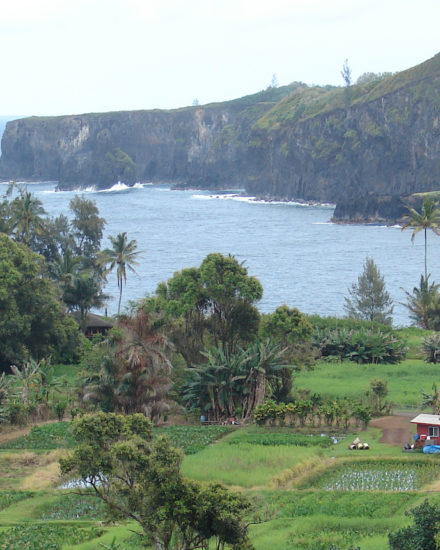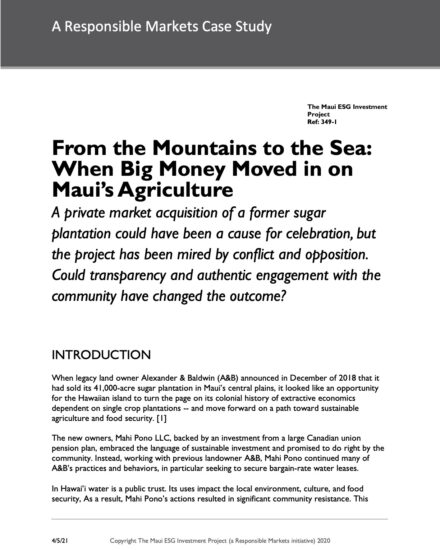A New Responsible Markets Case Study: From the Mountains to the Sea
Case Study Casts Doubt Over ESG Claims of Canadian Pension Fund PSP’s Major Agriculture Investment on Maui, Calls For Greater Scrutiny into the Community Impact of Investments
Link to the full case study here: From the Mountains to the Sea: A Responsible Markets Case Study
April 6, 2021 Institutional Investor coverage of the Case Study: PSP and Trinitas Accused of Greenwashing Hawaiian ESG Investment; A Canadian pension fund and its private equity partner come under fire
May 13, 2021 Public Service Alliance of Canada statement about Canadian pension funds and water privatization


